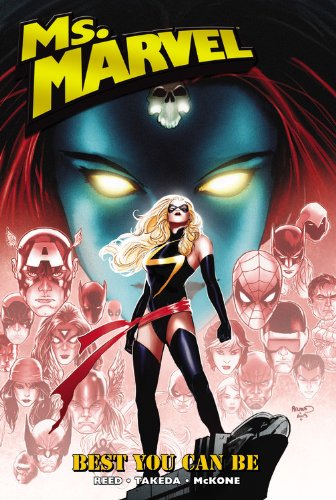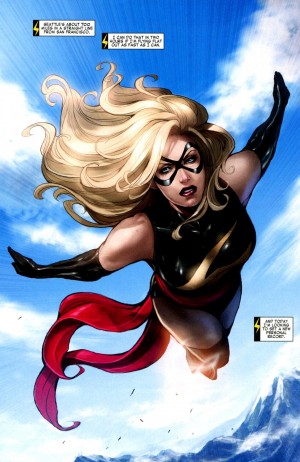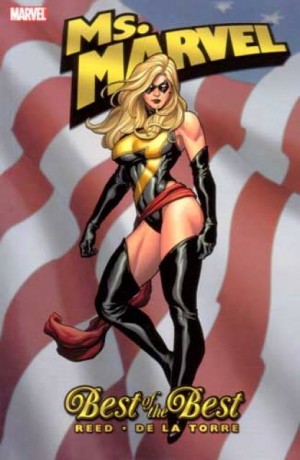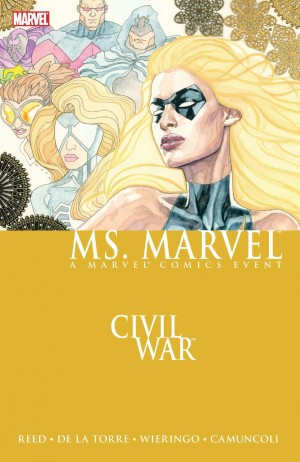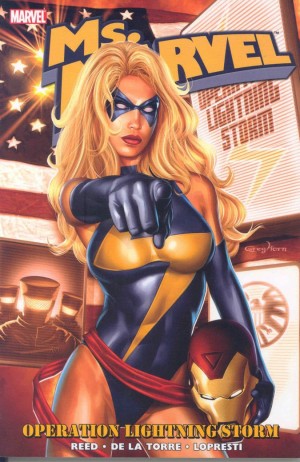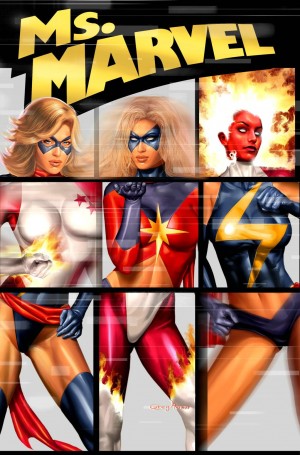Review by Ian Keogh
Identity has been a strong theme over the past two Ms. Marvel graphic novels, and that’s the case again, although this time it’s someone else’s identity.
Before we reach that there’s another matter to clear up in the final book of this series. A whimsical, and frankly unlikely, item Brian Reed introduced in Dark Reign was Spider-Man asking Ms. Marvel for a date. Should this have been forgotten as a passing caprice? Well, yes. It’s as forced as Reed makes the date seem, lacks the intended charm, and ranks near the bottom of the material produced for the series. This isn’t helped by the use of three, yes that’s three, pencil artists over the course of single story, making it read as if it was originally intended as a shorter piece drawn by the always good Mike McKone, then expanded to include sequences by Derec Donovan and Rob Disalvo. It switches awkwardly from McKone’s naturalism to cartooning.
It’s all preferable to Sana Takeda. His pin-up pages (see sample art) make extremely good portraits and have an allure, but applying the same techniques to telling a story results in awkward layouts, posed figures, and a problem with movement. The collection’s final pages are the work of Ben Oliver. As he’s finishing a chapter begun by Takeda, he works in that style, and as this was presumably a rush job the lack of backgrounds is understandable, but supplying Ms Marvel with a pug nose isn’t.
The chapters illustrated by Takeda concern Carol Danvers hunting down the shapeshifting Mystique. Years previously she was directly responsible for the most traumatic event of Carol’s superhero career, although didn’t carry out the deed herself. Again, it’s weak. It’s as if Reed had really said all he had to say about Ms. Marvel, yet still needed to finish the series, so dredged some discarded ideas from the trash file and filled them in. The coda is an extremely forced reprise of the opening book’s idea of Ms. Marvel establishing herself as Best of the Best. Surely Reed was aware of the series’ impending cancellation, and this being the case he owed it to the readers to draw to a close matters involving the supporting characters and subplots he introduced, most unseen since Secret Invasion, rather than provide a perfunctory page filler.
Reed’s version of Ms. Marvel is a frustratingly inconsistent series, not well served by constant artistic changes, yet the lows aren’t all down to that. When there’s a good idea followed through, like in parts of Civil War or Ascension it produces a decent read, but all things considered, Carol Danvers was best passed to Kelly Sue DeConnick, who picked up on elements of this book and rechristened her Captain Marvel.
